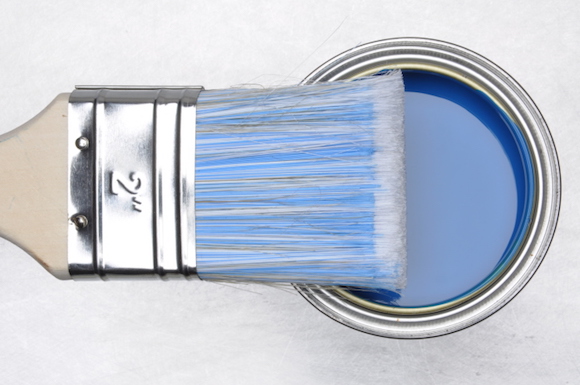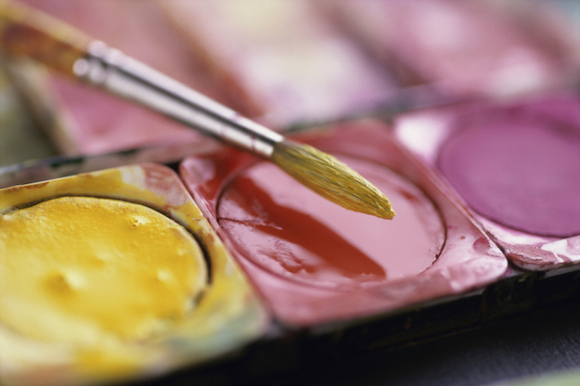Whether your painting project is large or small, it’s almost certain that when you’re finished, you’ll have some leftover paint.
And if you want to use the paint in the future, you’ll need to make sure it’s stored correctly.
“It is possible that both unopened and opened paint may last for years,” noted Jonathan Chiaro, executive vice president of Loconsolo Paints. “This is totally dependent upon a range of factors, including the environment in which the products were stored and the ability to keep air and bacteria out of the can for opened containers.”
Follow the guidelines below to keep paint—of all kinds—in good condition and ready to use when you need it.
Household Latex Paint
The biggest problem with storing opened paint actually starts way before storage, pointed out Mark Clement, home improvement expert, carpenter and co-host of MyFixitUpLife.com show. If the can’s lid gets mangled when opening, it will be hard to close it properly later on.
After removing the lid, punch holes in the gutter before you start painting. When you’re finished painting, run a clean brush around the gutter to clear it and then put the lid on.
To seal properly: “Cover the can and lid with a rag, then tap the lid into place with a hammer,” said Clement.
Label the paint can, noting which room you used it in and the date you painted. Then store it in a cool, dry area with a temperature range between 50 degrees and 90 degrees Fahrenheit.
“Make sure that any containers that are being used for storage will not rust,” added Chiaro. If you store paint in metal cans, keep the cans off of concrete, as concrete can cause metal to rust.
Acrylic Paint
After using acrylic art paint, wipe the rim, cap and sides of each bottle with a damp cloth. Let the area dry, and then store in an area with a temperature that won’t drop below freezing point, and doesn’t exceed 90 degrees Fahrenheit.
Store acrylic paints in a place that doesn’t receive direct sunlight; if they get too warm, mold can begin to form.
A paint rack, shelf, or bin might work well for storing acrylic paints until you need them.
Oil Paint
After placing oil paints on a palette, if you want to work with them for a few days, lay a sheet of plastic wrap over the paint.
“I make sure to tap down the wrap so it seals completely around all the paint,” said Michael Chesley Johnson, landscape en plein air painter in oil and pastel.
If you want to work with the paint for an extended period of time, consider a palette garage, which holds paints in a tube to keep them fresh for months.
Over time, oil paint that has been put out will develop a thick coating as a top layer. “The paint beneath this skin is perfectly usable; you just have to poke through or remove the skin to get to the good paint,” said Johnson.
If the paint turns too thick and paste-like, it’s time to throw it away, added Johnson.
Watercolor Paint
Watercolors generally come in the form of a thick paste inside a tube, or as a dry cake in a plastic container.
For both types, look for a dry, cool area to keep the paints. Watercolors can last for years in this type of condition.
A hanging jewelry organizer with clear pockets might work well to keep watercolor tubes organized Other options to consider: narrow shelves, pegboard with clips, or a lipstick organizer.
Using Self-Storage
“We don’t suggest storing paint in storage units as there are so many things that can go wrong,” said Anna Horn, representative of Eversafe Moving and Storage, a Philadelphia-based company.
Paints that are combustible could cause a fire. Furthermore, if the storage unit is not climate controlled, the paint could be exposed to extreme temperatures and humidity.
“Always check with your facility manager,” added Horn.
Some art or craft paints may be allowed, but you’ll want to make sure they are well sealed before storing.






